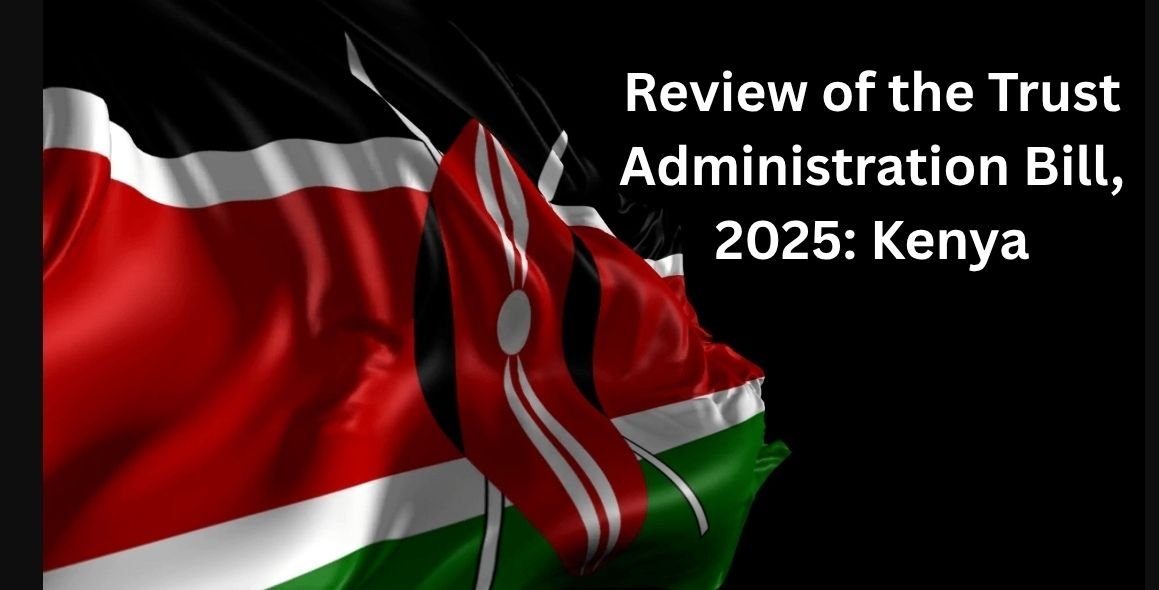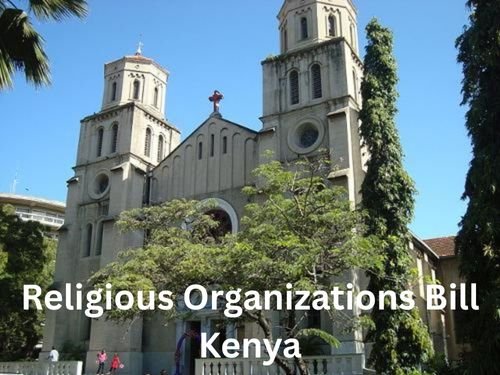
SALIENT FEATURES OF THE TRUST ADMINISTRATION BILL 2025: KENYA
The Business Registration Service (BRS) has prepared the Trust Administration Bill, 2025 to consolidate and reform laws relating to registration, incorporation, management and regulation of trusts and trustees in Kenya. The bill seeks to streamline and give clarity in the registration, incorporation and management of trusts.
Below are the salient features of the Bill:
| NO. | FEATURE | DESCRIPTION | |
| 1. | Types of trust registerable under the Bill | Charitable trust | A charitable trust is a trust formed for the exclusive purpose of the relief of poverty, the advancement of education, religion, human rights and fundamental freedoms, the protection of the environment or any other purpose beneficial to the general public. |
| Non-Charitable trust | A non-charitable purpose trust is a trust established to fulfil a specific purpose that does not qualify as charitable under the law. | ||
| Family Trust | A family trust is a trust, whether living or testamentary, partly charitable or non-charitable, that is registered or incorporated by any person or persons, whether jointly or as an individual, for the purposes of planning or managing their personal estate. | ||
| 2. | Parties to Trust | Settlor | Settlor means a person who establishes a trust in accordance with the Act and includes a founder or a donor. |
| Trustee | Trustee means a person who is authorized to act as a trustee. In other words, is the person who manages the trust and administer the trust’s property according to the wishes of the trust creators. | ||
| Enforcer | An enforcer is a person who enforces the terms of the trust deed and oversee trustees’ actions to ensure compliance with the purpose for which the trust was formed for. They inquire into the status of implementation of the trust and hold trustees accountable for their action as well as report to settlors or beneficiaries in case of any breach. | ||
| 3. | Functions/Power/duties and responsibilities of parties | Settlors | To form/create the trust. To give property to the trust. To revoke, vary or amend the terms of the trust. To direct or approve the advancement, distribution or application of income or capital of the trust property. To give directions to the trustee in connection with the purchase, retention, sale, management, lending, pledging or charging of the trust property or the exercise of any powers or rights arising from such property. To appoint or remove any trustee, enforcer or beneficiary or any other person who holds a power, discretion or right, or who acts in connection with the trust or with trust property. To appoint or remove a trust practitionerTo restrict the exercise of any powers or discretions of a trustee |
| Trustees | A trustee shall deal or manage the property of the trust in accordance with the terms of the trust deed, without any deviation or derogation, unless explicitly authorized by the terms of the trust deed or by a Court. Duty to know and act in accordance with the terms of the trust instrument. Duty to act honestly and in good faith. Duty to hold or deal with trust property and act for the benefit of the beneficiaries or to further the permitted purpose of the trust. Duty to avoid a conflict between his or her interests and the interests of the trust or any of the beneficiaries of the trust. Duty to treat all beneficiaries impartially and in accordance with the terms of the trust instrument. Duty to execute, administer the trust and exercise his or her function in accordance with the provisions of the Act and terms of the trust deed. Duty not to profit from trusteeship unless permitted under the Act or trust deed. Duty to preserve the trust property. Duty to keep trust property separate from the trustee’s own property and separately identifiable from other property of which he or she is a trustee. Duty to keep adequate, accurate, and up-to-date records of the trust and all matters relating to the administration of the trust. Duty not to use or disclose its trust information unless authorized. Power to delegate his or her functions if permitted by the Act or by the terms of the trust deed. Power to appropriate trust property in or towards satisfaction of the interest of a beneficiary in accordance with the Act or the trust deed. Power to sale, lease or mortgage trust property to raise money for the trust. Power to borrow and raise money required by the trust and charge all or any part of the trust property. Power to distribute trust property. Power to sue and settle claims. Power to insure trust property. In execution of his or her official duties, to receive remuneration as authorized by beneficiaries, trust deed, court or under the Act | ||
| Enforcers | To enforce the terms of the trust deed. To inquire into the status of implementation of the trust. To require the trustee to take remedial action where there is breach of the terms of the trust deed. To report to the settlor or the beneficiaries any financial or other breaches by the trustees. To pursue legal action against the trustees, whether criminal or civil. Have access to any documents, trust deed, accounts or any other information necessary for the performance of his or her functions | ||
| 4. | General responsibilities of the trust | Trust | To keep register and records of the trust. To keep accounting records of the trust. To keep register of Beneficial owners. To file annual returns with the Registrar within thirty days of the anniversary of its registration or incorporation |
| 5. | Trust Service Provider | A trust service provider is a person who offers the following trust services and can be an advocate of the High Court of Kenya, a Certified Secretary or a Certified Accountant. | trust formation and set up including offering advisory services, preparing registration or incorporation documents and ensuring the trust complies with the relevant laws and regulations. Trust administration, including managing and investing the assets of the trust in accordance with the terms of the trust deed. Maintaining accurate and up-to-date records of all transactions, distributions and financial activities of the trust. Preparing the trust’s financial statements and providing regular financial reports as is required under the Act. Advising the trust on governance issues. Lodging statutory documents on behalf of the trust. |
| 6. | Other proposals in the Bill | A charitable and a non-charitable purpose trust to have at least three trustees. A family trust to have at least one trustee. Any trust to have at least one trustee who is a natural person and a resident of Kenya. Appointment of a new enforcer to be notified to the Registrar within 21 days of appointment. Trustee to notify the Registrar within 14 days where enforcer ceases to hold office. Changes of Enforcers to the filed with the Registrar within 14 days by the trustees. Appointment of new trustee to be notified to the Registrar within 21 days of such appointment. Trustee to resign by issuing a 30 days resignation notice or such notice period as the trust deed may provide. Remaining trustees to notify the Registrar of resignation of a trustee within 14 days of such resignation |
At A.O. WANGA ADVOCATES we are happy to assist you with all trust related issues in Kenya. Contact us on info@aowangaadvocates.com or +254794600191.
All rights reserved for A.O. WANGA ADVOCATESwww.aowangaadvocates.com






Leave a Reply